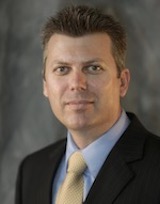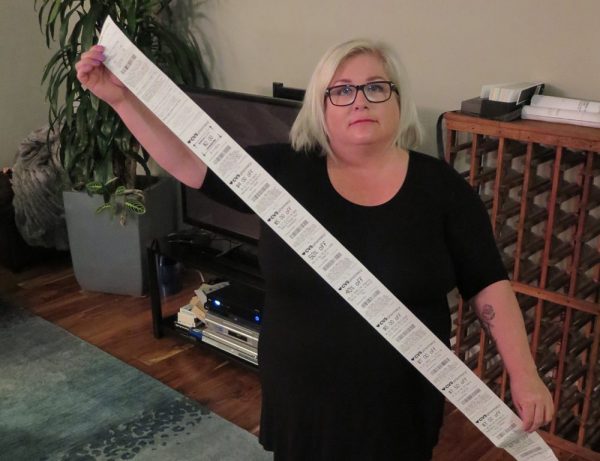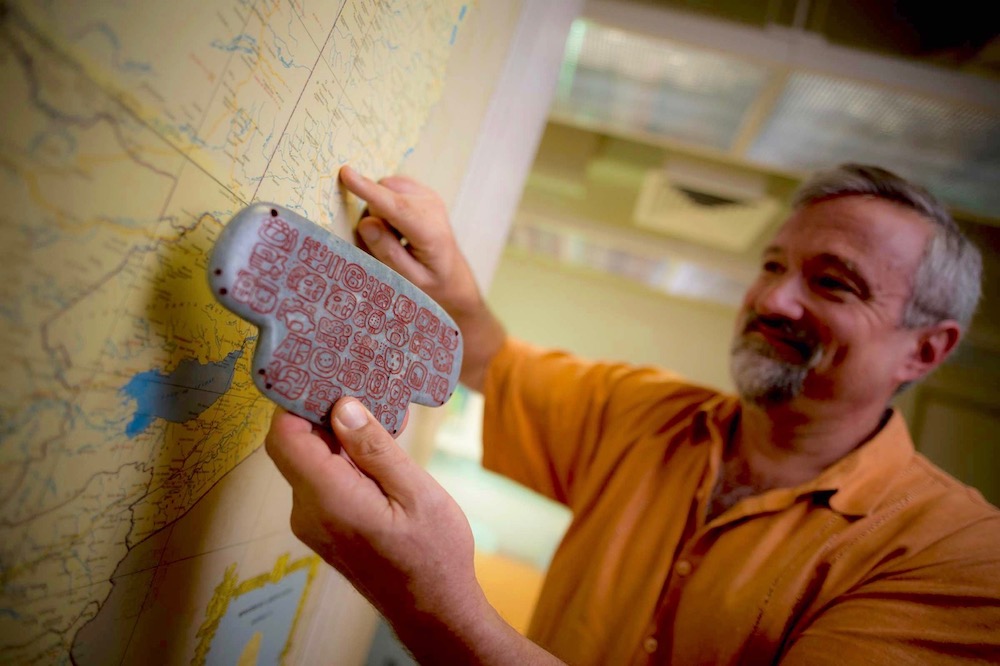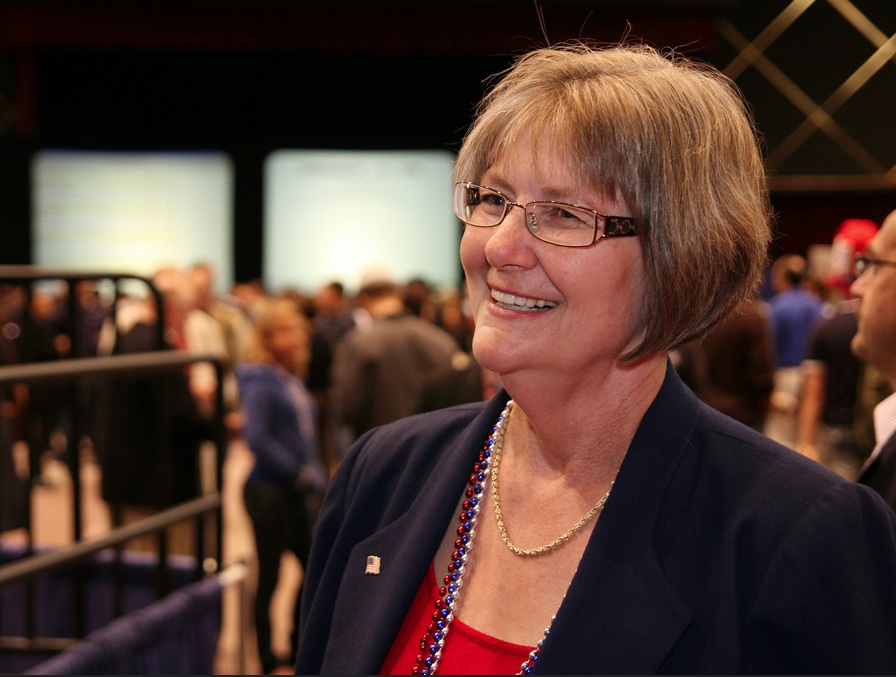Daily Business Report-March 27, 2019
Inside Viejas Casino, one of the major Indian gaming establishments in San Diego County. (Photo courtesy of Viejas Casino)
Indian gaming’s major players coming
to San Diego April 1 for 35th annual
Indian Gaming Tradeshow & Convention
The 35th annual Indian Gaming Tradeshow & Convention, the largest gathering of tribal leaders and casino executives in the country, will be held April 1-4 at the San Diego Convention Center.


The sponsor, the National Indian Gaming Association (NIGA), is a nonprofit organization of sovereign tribal nations with other non-voting associate members representing organizations, tribes and business engaged in tribal gaming enterprises around the country.
Several speakers are scheduled to appear during the convention, including Tuari Bigknife, attorney general for the Viejas Band of Kumeyaay Indians and chief legal officer of Viejas Enterprises, and Anastasia “Stasi” Baran, co-founder and COO of nQube Data Science Inc.
Bigknife is responsible for administering Viejas’ legal affairs and provides operational oversight and strategic guidance to Viejas’ business enterprises including Viejas Casino & Resort, Viejas Outlet Center, and Viejas Entertainment & Production . He is a member of the International Masters of Gaming Law and has been recognized multiple times as one of San Diego’s top in-house counsel.
Baran received her Ph.D. in Electrical and Computer Engineering from the University of Manitoba in 2016, where she specialized in applications of non-linear optimization methods. She uses her multi-disciplinary background and computing expertise to find and develop suitable applications for nQube’s advanced artificial intelligence-driven optimization suite. Her combined interests in large-scale data modeling problems and the gaming industry have helped to develop nQube’s AI-based slot floor optimization and player segmentation solutions.
____________________
County to improve psychiatric care
for people in criminal justice system
The county Board of Supervisors on Tuesday voted to direct the county, the District Attorney and the Sheriff to develop a plan to strengthen the county’s ability to help people with mental health issues and substance abuse, both of which intersect with the criminal justice system.
During Chairwoman Dianne Jacob’s State of the County Address in February, she called for action on three proposed solutions for the critical needs of people who suffer from mental illness and cycle through the criminal justice system.
The goal is to respond to behavioral health crisis situations in the criminal justice system by implementing the following three objectives:
• Develop a timely, follow-up care and case management system for people involved in a Psychiatric Emergency Response Team (PERT) /law enforcement crisis call. PERT pairs a licensed mental health clinician with a specially trained Sheriff’s deputy or police officer. Together, the pair responds to emergency calls where mental illness could be a factor.
• Establish regional Mental Health Crisis Stabilization Centers that can provide 24/7 walk-in mental health and substance use disorder services, including law enforcement drop-offs.
• Work with school districts and the County Office of Education to develop enhanced school-based crisis response, including possible expansion of existing PERT programs for threats or crisis situations involving students.
____________________
Illumina and Lundbeck Foundation
collaborate to decode genetics of mental illness
Illumina and the Lundbeck Foundation GeoGenetics Centre at the University of Copenhagen, Denmark are partnering to explore the relationship between the evolutionary history of select mental and neurological disorders and infectious pathogens. One of the first projects of its kind worldwide, the endeavor aims to acquire new knowledge in terms of the medical and biological understanding of special factors underlying the development of human neuropsychiatric diseases through the ages. Ultimately, the project may provide a new approach to the development of medicines and other therapeutic treatments for mental and neurological conditions.
____________________
Supervisors set April 9 workshop
to study buying, selling electricity
The county Board of Supervisors voted Tuesday to start studying the idea of buying and selling electricity to county residents by scheduling a public workshop April 9 to hear from experts, consumer groups and other jurisdictions.
The workshop is scheduled for 1:30 p.m. Tuesday, April 9 in the Board Chambers, Room 310 at the County Administration Center at 1600 Pacific Highway in San Diego.
Supervisors voted unanimously in February to study the idea of Community Choice Energy programs, also known as Community Choice Aggregation. These programs allow cities and counties to buy, and/or generate, and sell electricity to residents and businesses as alternatives to public utilities like San Diego Gas & Electric.
In its February vote, the Board directed County staff to return in October—with public updates every two months— with a feasibility study that would include options, including the option of not creating a program, pros and cons, and a business plan for the Board to consider.
The scheduled April 9 public workshop will mark the first of the bimonthly updates.
____________________

Commentary
Banning paper receipts
just more pettifoggery
By Dan Walters |CALmatters Columnist
Although the origins of “pettifoggery” are somewhat obscure, the word’s meaning is quite clear. It refers to engaging in trivial arguments or activities, consuming energy better spent on important matters. And it perfectly describes the busybody ethos of today’s state Legislature.
Nothing is, it seems, too inconsequential for those who sit around dreaming up new laws to regulate human behavior.
The latest bit of pettifoggery to surface in the Capitol is Assembly Bill 161, introduced by Assemblyman Phil Ting, a Democrat from San Francisco, where micromanagement in the name of progressive politics is a highly developed political art form.
If enacted, AB 161 would prohibit large businesses, those with gross annual sales of $1 million or more, from issuing paper receipts to their customers, unless requested, by making electronic receipts the default.
The Legislature has already banned single-use plastic bags in grocery stores and insisted that plastic straws be offered to fast-food customers only on request, so the semi-ban on paper receipts is, to pettifoggers, the next logical step.
“They’re wasteful and they’re toxic,” Ting told CALmatters reporter Elizabeth Castillo. “Their lack of recyclability really makes them problematic.”
While the CVS drug chain is famous – or infamous – for its yards-long receipts that include discount coupons, those of most stores are just a few inches long and are infinitesimal portions of the waste chain of modern life.
Not only does it make little sense to single them out for a legal ban, but making electronic receipts the preferred method would require merchants to buy expensive new equipment and require their customers to provide email or text addresses.
Thus it would create massive new databases that merchants could use to bombard customers with ads or sell or rent out to others for the same purposes. Moreover, these new databases could be mined by hackers, giving them new avenues to steal identities.
The potential for mischief is why the Electronic Frontier Foundation, a digital rights group, is looking somewhat askance at Ting’s bill.
“It’s trying to reduce paper waste and that’s commendable, but we just want to make sure that in the process we’re not creating a big digital trail for everyone who goes into a drug store,” said Bennett Cyphers, a staff technologist for the organization. “If the business needs to collect some kind of contact information, what do they do with that data? It’s going to be a field day for data brokers, data about what people buy and who’s buying what and when. We’d really like that not to be the case.”
If Ting and other legislators really want to do something about the waste stream, they should spend less time dreaming up new forms of pettifoggery and more time working on the state’s very troubled recycling programs.
The three-decade-old program to encourage the recycling of beverage containers, known as the Bottle Bill, is struggling to survive due to changes in the international market for recycled materials and serious internal management problems.
Similar problems plague efforts to collect and recycle wastepaper, particularly the state’s exports to China, which has become increasingly choosy about what it will accept. It means that huge amounts of potentially recyclable materials are winding up, instead, in the state’s landfills.
Those are serious issues. Banning paper receipts is just grabbing low-hanging fruit to make headlines.
CALmatters is a public interest journalism venture committed to explaining how California’s state Capitol works and why it matters. For more stories by Dan Walters, go to calmatters.org/commentary
____________________

SDSU researcher comes step closer
to harnessing power of hydrogen
as reliable, inexpensive fuel
By Coleen L. Geraghty | SDSU NewsCenter
Hydrogen as a potential fuel source could revolutionize global energy consumption. Not only is hydrogen abundant and renewable, it is also a clean energy source with no harmful emission byproducts.
A San Diego State University researcher has come one step closer to harnessing the power of hydrogen as a reliable and inexpensive fuel. Inorganic chemist Jing Gu and collaborators at Princeton University developed a process to recover energy and electrons from organics in wastewater and generate hydrogen simultaneously using only solar energy.
Until now, hydrogen production from water relied on costly platinum catalysts. The SDSU team developed a more inexpensive catalyst with lower-cost metal sulfide containing molybdenum and nickel. Research by Gu and others in the field is aimed at lowering the cost of hydrogen fuel for potential use in “clean” consumer vehicles.
Additionally, Gu’s team identified the position of specific atoms within the catalytic framework, enabling them to better control the process and make it easier for others to replicate.
“This is an exciting discovery for our group,” Gu said, whose research is supported by the National Science Foundation. “We recovered hydrogen from water using a low-temperature, low-pressure method with small-scale equipment in the lab. And we are among a very few in the field that is able to precisely control the position of metal atoms in the catalyst.”
The framework developed by Gu’s team will allow researchers to determine how certain atoms interact during the hydrogen production process and why some work more effectively than others.




